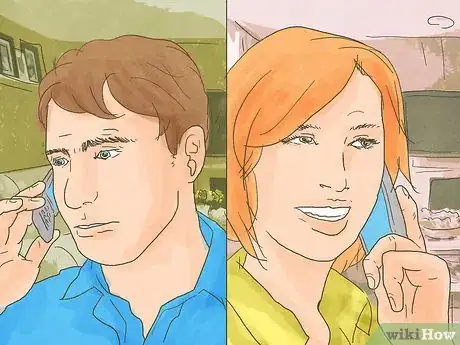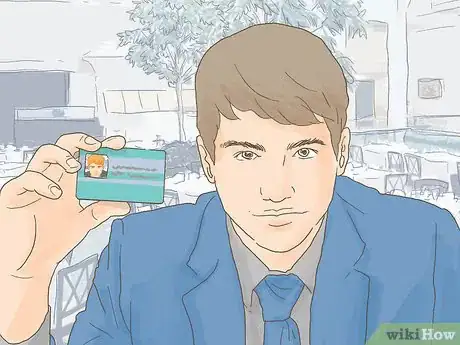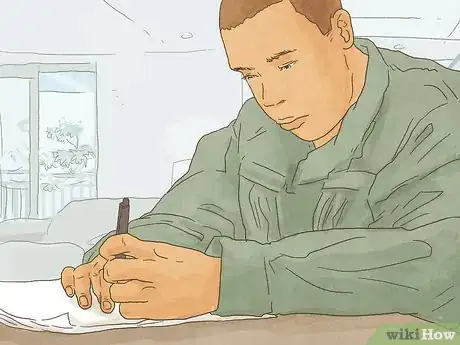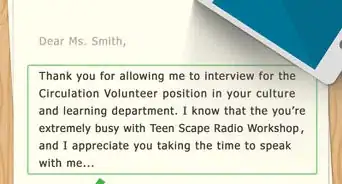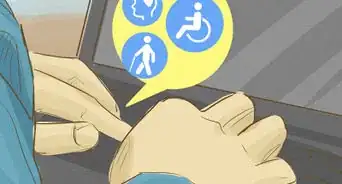This article was co-authored by wikiHow Staff. Our trained team of editors and researchers validate articles for accuracy and comprehensiveness. wikiHow's Content Management Team carefully monitors the work from our editorial staff to ensure that each article is backed by trusted research and meets our high quality standards.
There are 7 references cited in this article, which can be found at the bottom of the page.
wikiHow marks an article as reader-approved once it receives enough positive feedback. In this case, 100% of readers who voted found the article helpful, earning it our reader-approved status.
This article has been viewed 158,967 times.
Learn more...
Volunteer firefighting can be a great way to get involved in your community. If you're serious, then contact the local fire department and ask for an application. Be aware that this is a big commitment. You'll need to complete hundreds of hours of training, and you will need to be on call for local emergencies. This is a risky way to spend your time, but it can be deeply rewarding.
Steps
Applying to Volunteer
-
1Contact your local fire department. In the U.S., each county runs its own fire department, and not every department has a dedicated website. Run a web search to find email contacts and station addresses or visit the National Volunteer Firefighter Recruitment Center at [ http://www.nvfrc.com ] .Call, write an email, or go down to the nearest fire station. Say that you're interested in becoming a volunteer firefighter.
- If you call, make sure to use the non-emergency number! This should be listed on the department website. The emergency line is reserved for fires, and the people at the station won't appreciate a non-urgent call.[1]
- If you are in the U.S., you can go through your state firefighters' association. Visit the website and look for information about firefighting in your area.[2]
-
2Ask if they need volunteers. Not all stations take volunteers. Even if your local station does take volunteers, it might already have plenty of help. Ask about non-firefighting roles like communications, support, and fundraising.
- If there are no current openings, ask if there is any sort of waiting list. The department may need more help at some point.
Advertisement -
3Meet the requirements. The qualifications for volunteer firefighting vary widely from department to department. However, all fire stations do enforce a minimum age requirement.[3] Most fire departments require that you have a valid driver's license and can legally work in the U.S. Make sure that you live within the service area of the fire department so that you can respond to local emergencies!
- Most departments require that you are at least 14 years old. Some only accept volunteers older than 18.[4]
- Some departments only accept volunteers with a high school diploma or an equivalent degree.
-
4Apply. You will need to fill out an application form, and you may need to undergo a background check. Check the requirements! The screening process and the qualifications are slightly different for every fire department. Wait for the station administration to review your application. If they want your help, they will contact you.
-
5Take the next steps. If the department accepts your application, you'll usually be asked to come into the station and meet the firefighting team. There may be an interview, and you may even sit in on a training session. If the fire squad approves you for volunteering, then you will need to get a physical examination before you start your training. Be respectful and engaged. Focus on your goal.
Making a Commitment
-
1Get serious. If you're going to be a volunteer firefighter, you'll need to commit to hundreds of hours of training. You must be prepared to step up for your community and take action when there is a fire. Volunteer firefighting can be a rewarding way to spend your time, but you will need to be focused and committed to the role.[5]
-
2Research the role. Visit a local fire department, if you haven't already. Ask the firefighters about what it's like to work there. If you personally know any paid or volunteer firefighters, ask them to explain the risks and rewards of volunteering. Read articles and expert columns at sites like http://www.firerescue1.com/volunteer/.[6]
- It's important to visit the local fire station. Every fire department is different, and you should make sure that this is a place where you want to spend your time.
- Go for a ride-along, if possible. If you're serious about volunteering, most fire departments will allow you to ride along in the fire engine for a day while firefighters are responding to emergencies. This might help clarify your decision.[7]
-
3Make sure that you have enough time. Most fire departments require that you sign up for a volunteer schedule or pledge a certain amount of hours to the program. The training is difficult and expensive, so try to make it count. Be realistic with yourself. If you won't be able to commit to the life of a volunteer firefighter, consider other ways to give back to your community.
Training for the Role
-
1Complete the training program. In the U.S., all firefighters must finish a minimum 110-hour NFPA (National Fire Protection Association) certification course.[8] You may also undergo additional training in order to stay current with new technology. Visit the NFPA website for more information.
- If you are going to be physically putting out fires, many departments require that you train in a live fire situation before you start going out on calls.[9]
-
2Get fit. You will need to be in great physical shape. Take care of your physical and mental health so that you can best serve your community. Some departments maintain an actual fitness requirement, while others only suggest it.
-
3Be engaged. Spend as much time at the station as you can. Part of your informal training is to get to know the other firefighters. You will be working on a team to respond to emergencies with these people, so it's important that you mesh well.
Community Q&A
-
QuestionWhat kind of background check is required?
 Community AnswerYou will likely undergo a drug test and a background check, which will reveal your criminal record, if you have one. You may find minor infractions, such as traffic tickets, during a background check.
Community AnswerYou will likely undergo a drug test and a background check, which will reveal your criminal record, if you have one. You may find minor infractions, such as traffic tickets, during a background check. -
QuestionCan I be a firefighter if I was generally discharged from bootcamp?
 Community AnswerUnless you were given a dishonorable discharge, your status in the military should not affect your eligibility.
Community AnswerUnless you were given a dishonorable discharge, your status in the military should not affect your eligibility. -
QuestionCan a felony affect my application?
 Community AnswerMany fire departments perform a background check on potential candidates. Having a conviction for a serious crime, such as a felony, could certainly affect your chances.
Community AnswerMany fire departments perform a background check on potential candidates. Having a conviction for a serious crime, such as a felony, could certainly affect your chances.
Warnings
- Being a volunteer firefighter is a risky role. You are endangering your life for the lives of others. However, many find the experience to be deeply rewarding.⧼thumbs_response⧽
References
- ↑ http://www.volunteerfd.org/become-a-volunteer-firefighter
- ↑ http://www.csfa.net/
- ↑ http://www.firerescue1.com/fire-products/fire-helmet-fronts/articles/1063900-How-to-get-involved-with-a-volunteer-fire-department/
- ↑ http://www.becomeavolunteerfirefighter.org/who-can-become-a-volunteer-firefighter/
- ↑ http://www.volunteerfd.org/become-a-volunteer-firefighter
- ↑ http://www.firerescue1.com/volunteer/
- ↑ http://www.volunteerfd.org/become-a-volunteer-firefighter
- ↑ http://www.nfpa.org/training/certification-programs/certified-fire-protection-specialist
- ↑ http://www.gpstc.org/training-divisions/georgia-fire-academy/volunteer-firefighters/
About This Article
To become a volunteer firefighter, you'll need to be at least 18 years old, and you may need to have a high school diploma depending on the department. I you meet the requirements, contact your local fire department and let them know that you're interested in volunteering. If there are openings, they'll have you fill out an application and complete any necessary screening processes. To learn how to train to be a volunteer firefighter, keep reading!

